Effective Lead Generation for Detox Centers with Growtha's Services
Driving Growth: Innovative Strategies to Boost Detox Center Admissions in 2024
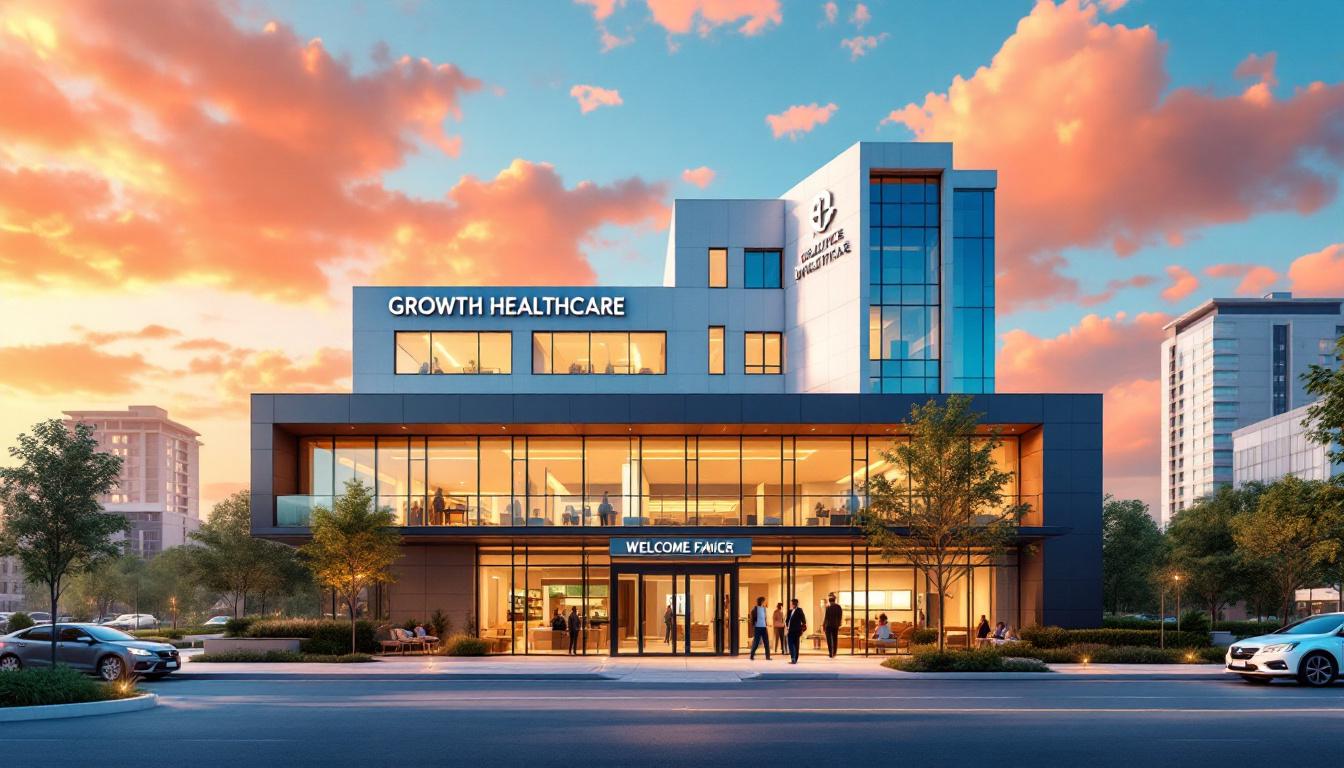

Effective Lead Generation for Detox Centers with Growtha's Services
Navigating the Digital-First Landscape of Addiction Recovery Marketing
As the addiction treatment industry evolves, so do the marketing strategies that help facilities attract the right clients. In 2024, digital-first approaches have become paramount, with a focus on targeted outreach, empathetic communication, and data-driven optimization. This article explores comprehensive tactics for lead generation, from leveraging marketing technology to creating authentic content that resonates with families and potential patients, ensuring detox centers can increase their admissions effectively with Growtha's expert services.
Implementing Multi-Channel, Data-Driven Lead Generation Strategies
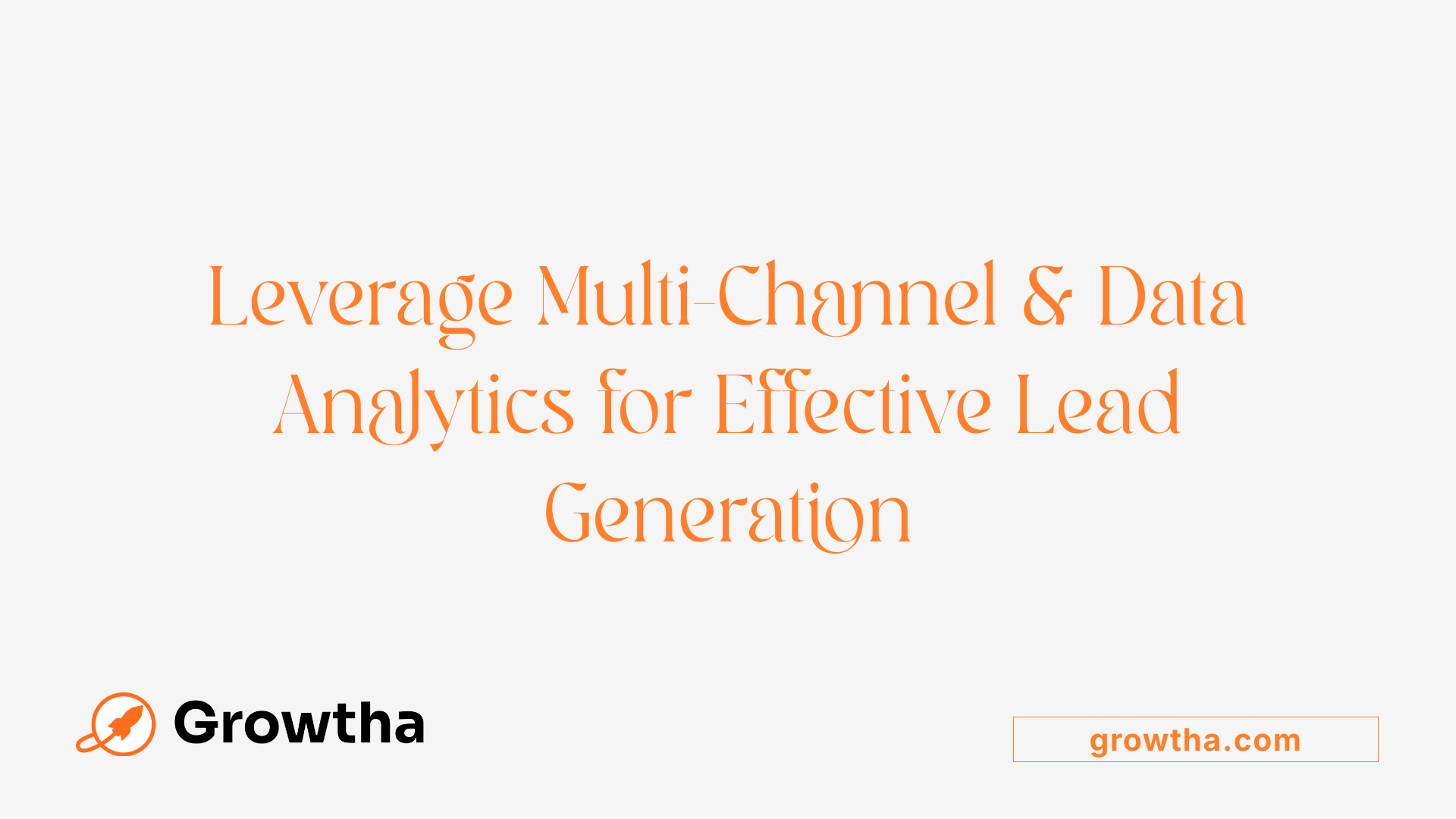
What are effective strategies for lead generation in addiction treatment centers?
Effective lead generation in addiction treatment centers depends on a blend of targeted, organic, and paid approaches that utilize data and automation. One powerful tool is the use of sales intelligence platforms like Cognism. These tools help identify high-potential prospects by providing detailed contact information, behavioral signals, and intent data. Such insights allow treatment centers to focus their outreach on individuals most likely to seek help, improving conversion rates.
Optimizing online presence is equally important. Search Engine Optimization (SEO) ensures that when families research treatment options, centers appear at the top of search results. Creating engaging content, including videos sharing real recovery stories and informative webinars, helps establish authority and build trust.
Paid advertising, especially through retargeting ads on multiple platforms such as Google, Facebook, and industry-specific sites, can significantly amplify reach. Retargeting ensures that individuals who have shown interest are reminded of the center’s services, increasing the chance of conversion.
Automation plays a vital role in nurturing leads. By setting up automated email campaigns and employing A/B testing for landing pages and ads, centers can continuously learn what messaging resonates best with their audience. Monitoring these metrics helps refine strategies over time.
Building strategic partnerships with community organizations and healthcare providers can expand outreach channels further. Encouraging satisfied clients to leave reviews and offering free consultations, virtual events, or trial programs also assist in nurturing leads, turning inquiries into admissions.
Crucially, integrating these strategies with real-time data insights—from website call tracking to insurance verification and bed availability—ensures a seamless customer experience that increases the likelihood of successful admissions.
Harnessing Digital Outreach: The Shift Toward a Digital-First Approach in 2024
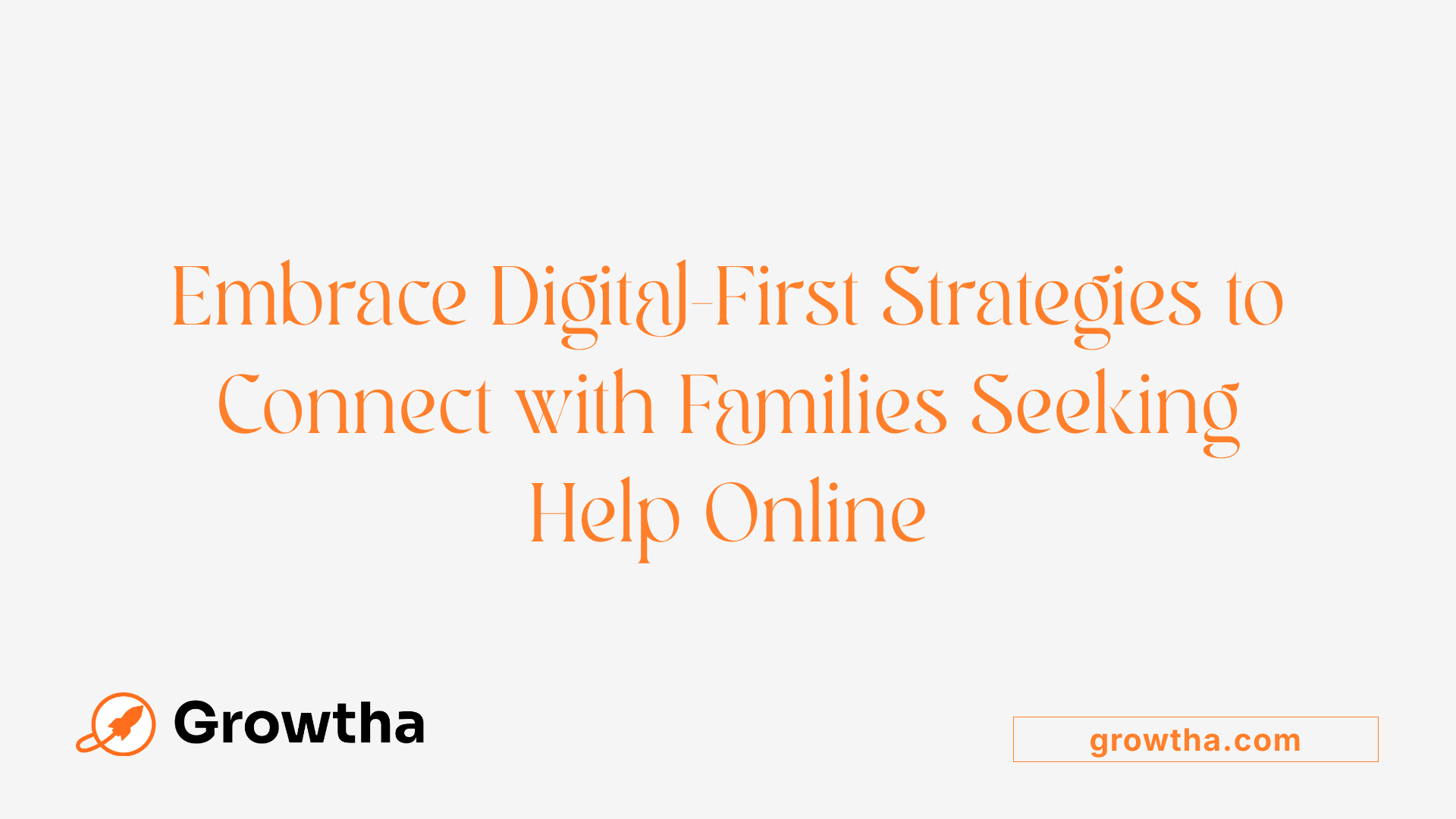
Why do 86% of families research treatment options online before making contact?
In today's digital age, most families seeking addiction treatment start their journey online. This trend highlights the importance of having a strong digital presence, as it directly influences their decision-making process. When families search for detox and rehab facilities, they seek credible, accessible information that addresses their concerns and provides reassurance.
How has the landscape shifted toward digital-first outreach strategies?
In 2024, addiction recovery programs are increasingly adopting digital-first methods to reach potential clients. This includes enhancing their websites with SEO optimization, engaging in targeted paid advertising, and creating compelling content that tells real stories. Social media, email marketing, and online reviews form vital channels—helping facilities stand out in a crowded market.
How can detox and rehab facilities effectively attract potential clients through digital marketing?
Effective digital marketing combines various tactics:
- SEO and Content: Optimizing websites with relevant keywords and publishing blogs or success stories help build credibility.
- Online Reviews and Local Listings: Managing reviews and maintaining a presence on local directories increases trust.
- Social Media and Email Campaigns: These foster ongoing engagement and community building.
- Paid Advertising and Performance Analytics: Targeted ads reach the right audience, while analytics refine strategies.
Partnering with healthcare marketing experts can further improve these efforts and ensure compliance with regulations.
How do telehealth referrals impact recovery retention?
Telehealth has become a crucial component of addiction treatment outreach. It not only broadens access to care but also significantly improves patient retention rates. Research indicates that telemedicine can increase 30-day retention by nearly 2.6 times, making it an effective way to keep patients engaged during critical early stages of recovery.
What role does telemedicine play in modern addiction recovery?
Telemedicine offers convenient, flexible access to treatment services, enabling patients to receive counseling and support from their homes. This accessibility lowers barriers to continuing care and fosters consistent engagement. Integrating telehealth into treatment programs aligns with the digital-first approach, ensuring patients receive comprehensive, timely support throughout their recovery journey.
Optimizing Advertising Campaigns for Maximum Impact
What are best practices for optimizing advertising campaigns like PPC, SEO, and social media to attract potential clients for addiction treatment services?
To effectively reach individuals seeking addiction treatment, centers must implement strategic advertising campaigns across multiple channels. One of the fundamental approaches is the use of targeted keyword strategies. Incorporating negative keywords prevents ads from appearing for irrelevant searches, saving budget and increasing efficiency. Using long-tail keywords helps attract highly qualified prospects who are searching for specific solutions.
Crafting emotionally compelling ad copy is crucial. Messages should resonate with potential clients and their families, focusing on empathy, hope, and understanding. Clear calls-to-action (CTAs), such as "Get Help Today" or "Start Your Recovery Now," encourage immediate engagement. The ad content must align with the landing pages, which should be optimized for mobile usage, user experience, and ease of navigation.
Ongoing performance analysis is vital. Conversion tracking tools monitor which ads and keywords lead to inquiries or admissions, enabling data-driven decisions. Conducting A/B testing on ad variations—altering headlines, images, or CTAs—helps identify what works best. Refinement based on these insights enhances overall campaign success.
Local SEO and community engagement significantly amplify outreach efforts. Optimizing the website and content for local search results ensures the treatment center appears prominently within the community. Building a positive reputation through reviews, testimonials, and social proof fosters trust among prospective clients and their families.
A multifaceted approach combines paid advertising (PPC), organic and paid social media efforts, content marketing, and email campaigns. Integrating these channels creates a comprehensive outreach strategy that can adapt to changing trends and audience behaviors.
Ensuring compliance with HIPAA, FTC regulations, and privacy standards is paramount. Transparent and ethical marketing builds credibility and trust, ultimately increasing the likelihood of converting prospects into admitted patients. Regularly reviewing and adjusting strategies based on campaign analytics leads to sustained success and higher returns on investment.
Website Optimization: Turning Visitors into Qualified Leads

How can addiction treatment centers improve their website to generate more leads?
Optimizing a treatment center’s website is essential for attracting and converting visitors into potential clients. A key starting point is ensuring the site is mobile responsive. In 2024, most families research treatment options online, often using smartphones or tablets, so a smoothly functioning mobile experience is critical.
Clear calls-to-action (CTAs) should guide visitors effortlessly to take the next step, whether it’s booking a consultation, calling for more information, or accessing resources. CTAs should be prominent, simple, and encourage immediate engagement.
User-friendly navigation helps families find essential information quickly. Sections detailing treatment programs, staff bios, insurance verification, and real-time bed availability need to be easy to locate and access.
Managing online reputation is equally important. Regularly monitoring reviews, encouraging honest feedback, and responding promptly help build trust with prospective clients. Positive reviews and active engagement showcase credibility.
Content is a powerful tool for establishing authority and empathy. Blogs that answer common questions, videos sharing real stories, and success stories humanize the treatment experience, making families feel understood and hopeful.
Social media advertising and local outreach extend the reach of treatment centers within their communities. These strategies increase visibility and help connect with those actively seeking help.
Integrating email marketing campaigns allows for ongoing nurturing of leads. Coupled with call tracking analytics, centers can gain insights into visitor behavior and preferences, enabling more personalized and effective communication.
Maintaining referral partnerships with healthcare providers and ensuring compliance with HIPAA and other regulations through ethical marketing practices helps foster trust. These efforts support a steady flow of qualified leads.
In summary, a well-optimized website combined with strategic marketing efforts not only increases visibility but also transforms visitors into committed clients, ultimately saving lives and supporting recovery.
Content Marketing: Building Trust and Establishing Authority
What are effective content marketing strategies to attract high-quality leads to addiction treatment centers?
Effective content marketing in the addiction treatment sector involves developing targeted and valuable content that resonates with prospective patients and their families. This includes creating informative blog posts that answer common questions about treatment options, success stories that inspire hope, and educational videos that provide a transparent look at the recovery process.
Addressing specific concerns of potential patients—such as fears about detox, financial questions, or outpatient versus inpatient care—helps to build trust and demonstrates empathy. Since families often research online before reaching out, ensuring these resources are accessible and easy to find is vital.
Positioning the treatment center as an expert in particular areas, like opioid addiction or dual diagnosis treatments, can help attract the right clients by highlighting specialized knowledge and services. Clear communication about what makes the center unique establishes authority and reassures potential patients.
To maximize reach, a comprehensive omnichannel content strategy is essential. This includes optimizing content for search engines (SEO), actively engaging on social media platforms, managing online reviews, and investing in paid advertising campaigns. This multi-faceted approach increases visibility across channels where prospects are already searching for help.
Maintaining compliance with HIPAA and other ethical standards is non-negotiable. Respecting patient privacy and sharing authentic stories responsibly builds credibility and trust, setting the foundation for a positive relationship.
Tracking performance through analytics enables centers to see which content approaches are most effective. Monitoring website traffic, engagement metrics, and referral sources allows continuous refinement of strategies, ensuring high-quality lead generation and improved admissions.
By combining targeted content creation, ethical practices, and data-driven adjustments, addiction treatment centers can establish themselves as trusted authorities—ultimately driving more qualified inquiries and guiding individuals toward life-changing care.
Utilizing Technology and Ethical Marketing for Sustainable Growth
What role does predictive analytics play in identifying prospects?
Predictive analytics has become a vital tool for addiction treatment centers aiming to target the most suitable candidates for their services. By analyzing data such as online search behavior, referral patterns, and patient demographics, these tools predict which individuals are most likely to benefit from treatment. This personalized approach enables outreach efforts to be more precise, increasing the likelihood of engagement and conversion. As a result, centers can allocate resources more efficiently while providing tailored support that resonates with prospective patients.
Why is compliance with HIPAA and FTC regulations important?
Maintaining adherence to HIPAA and FTC guidelines is crucial in addiction treatment marketing. These regulations ensure patient privacy and protect sensitive health information, fostering trust with potential clients and their families. Ethical marketing practices not only prevent legal penalties but also serve as a competitive advantage—demonstrating a commitment to integrity and patient confidentiality. Transparent and compliant communication helps build credibility, encouraging more families to seek assistance without fear of privacy breaches.
How do call tracking and analytics tools enhance marketing efforts?
Implementing call tracking and analytics tools provides valuable insights into how prospective clients find and interact with a treatment center’s online presence. Call tracking helps identify which marketing channels and campaigns generate the most phone inquiries, while data from website behavior reveal user preferences and concerns. This information allows centers to refine their strategies, optimize messaging, and improve the user experience. Ultimately, data-driven decisions lead to increased qualified leads and higher admission rates.
Why is partnering with marketing experts like Growtha beneficial?
Collaborating with experienced marketing firms such as Growtha can significantly boost an addiction treatment center’s outreach efforts. These experts bring specialized knowledge in areas like digital advertising, content creation, and reputation management. They develop tailored strategies that align with industry standards and ethical guidelines, ensuring compliance and maximizing ROI. With their support, facilities can effectively manage reviews, leverage social media, and utilize paid advertising, all while staying focused on providing compassionate care.
How can telehealth and virtual events help expand reach?
Telehealth services and virtual outreach events have revolutionized addiction treatment marketing in 2024. Telehealth boosts 30-day retention by over two and a half times, making it a powerful component in treatment planning. Virtual events enable centers to connect with a broader audience without geographical constraints, increasing awareness and engagement. These digital approaches are essential for reaching individuals actively seeking help, especially during times when in-person contact is limited.
| Strategy | Description | Benefits |
|---|---|---|
| Predictive Analytics | Uses data to identify likely candidates | Personalizes outreach, improves resource use |
| HIPAA & FTC Compliance | Ensures privacy and ethical standards | Builds trust, prevents legal issues |
| Call Tracking & Analytics | Tracks online inquiries and visitor behavior | Refines marketing, increases leads |
| Digital Engagement | Virtual events, social media, content | Expands reach, enhances credibility |
| Telehealth | Remote consultation and follow-up | Improves retention, accessibility |
Considering current trends, integrating these technologies and maintaining strong ethical standards are essential for sustainable growth in addiction treatment outreach.
Industry Support and Partnerships to Accelerate Growth
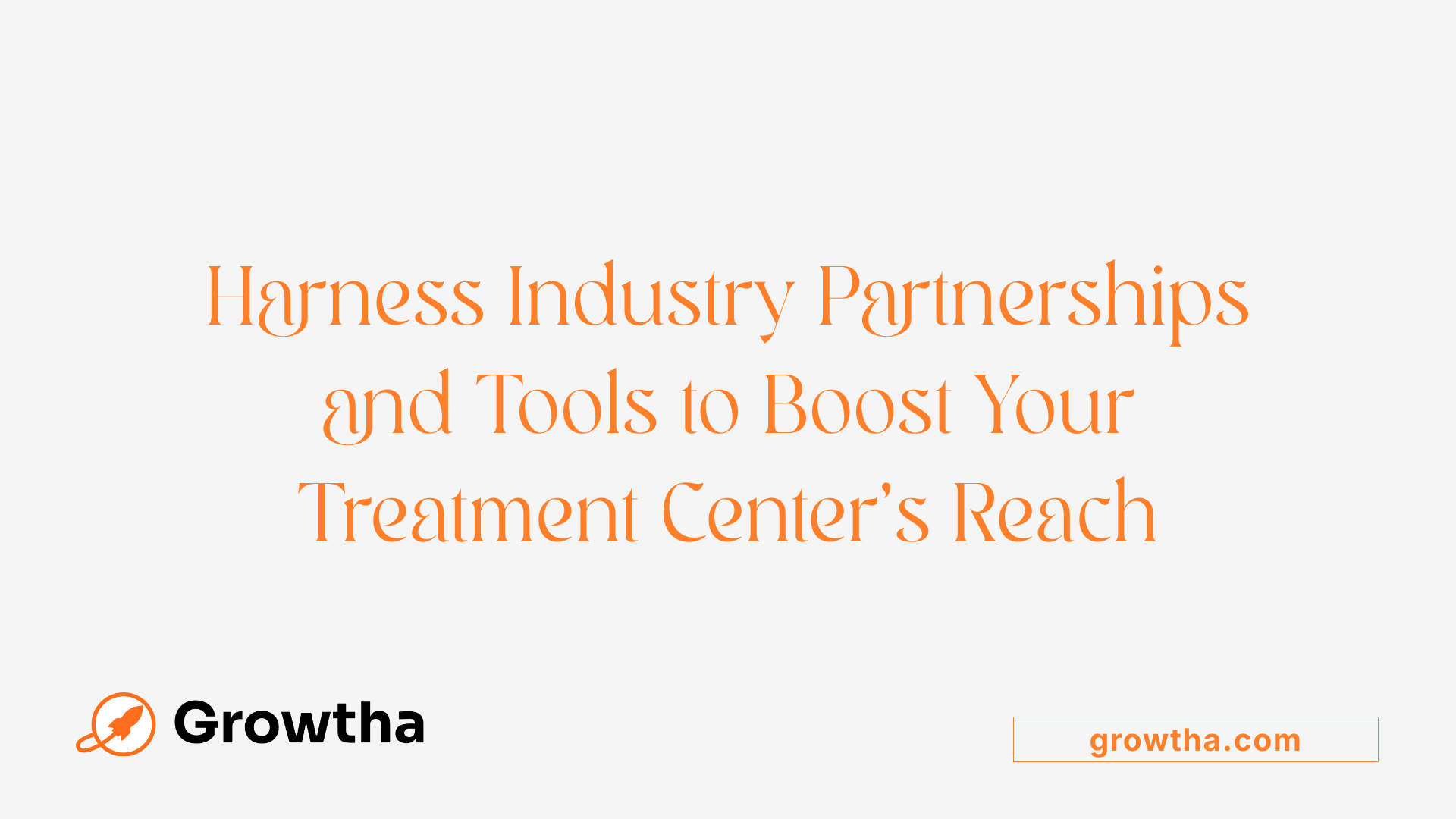
What are effective strategies for lead generation in addiction treatment centers?
Effective lead generation in addiction treatment centers relies on a blend of digital innovation and personalized outreach. Utilizing tools such as Cognism enables facilities to identify high-intent prospects through precise contact and company data, including signals indicating readiness to seek treatment. This approach enhances targeting accuracy, ensuring outreach efforts reach motivated individuals.
Content marketing plays a significant role by producing empathetic, informative resources that answer families’ unspoken questions. Videos sharing real success stories and introducing clinicians humanizes the treatment process and builds trust. Meanwhile, responsive website features—such as integrated call tracking—offer insights into visitor behavior, helping refine marketing efforts.
Paid advertising, including retargeting on platforms beyond traditional channels like Google and Facebook, increases visibility among those actively seeking help. Combining automation with continuous A/B testing of landing pages guarantees ongoing campaign optimization.
Partnerships also are vital. Collaborating with organizations and industry events enhances credibility and expands reach. Satisfied clients’ reviews and testimonials further boost reputation and generate referrals. Offering free virtual webinars, scholarships, and community outreach programs can attract a broader audience.
In today’s digital-first world, strategies like SEO, social media engagement, and real-time bed and insurance verification contribute to a robust pipeline. Integrating these tactics ensures that treatment centers effectively connect with individuals ready to begin recovery, ultimately increasing admissions and supporting sustained recovery success.
| Strategy | Description | Benefits |
|---|---|---|
| Sales intelligence tools | Use platforms like Cognism for high-quality prospect data | Better targeting and warmer leads |
| Content marketing | Create empathetic videos, FAQs, and webinars | Humanizes services, builds trust |
| Paid advertising | Implement retargeting beyond Google/Facebook | Increased visibility |
| Partnerships & industry events | Collaborate with organizations, participate in expos | Broader outreach and credibility |
| Website optimization | Use call tracking, real-time bed insurances | Insights and improved conversion |
| Community outreach | Offer scholarships, virtual webinars | Engages local communities and potential clients |
By integrating these elements, addiction treatment centers can significantly enhance their digital presence and generate a steady flow of qualified leads, ensuring they reach those in need and improve recovery outcomes.
Conclusion: Building a Resilient, Ethical, and High-Performing Marketing Ecosystem
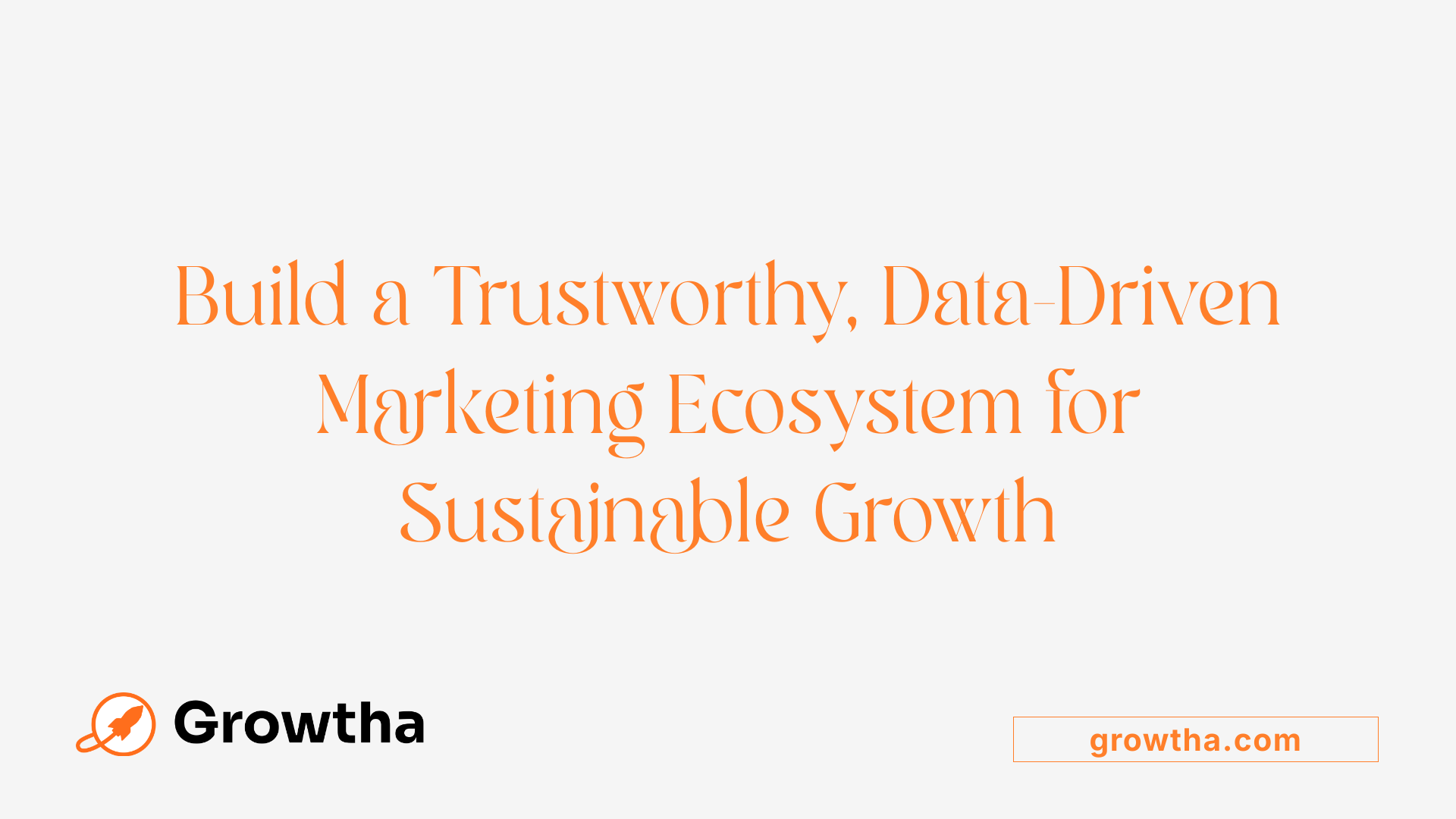
Summarizing Effective Practices for Addiction Treatment Centers
To attract more patients, addiction treatment centers need a multi-channel, integrated approach. Digital-first strategies, such as peer-led campaigns and content marketing, can increase engagement and trust. Telehealth services significantly improve 30-day retention rates, making them essential in modern outreach.
Providing instant insurance verification and real-time bed availability helps secure admissions, with 92% depending on these features. Creating empathetic content that answers families' unspoken questions builds rapport and establishes credibility.
Authentic videos sharing real stories and staff humanizes the facility, fostering trust. Managing online reviews, active social media presence, and localized marketing efforts amplify outreach. Paid advertising and participation in industry events further expand reach.
Optimizing website user experience with call tracking helps understand visitor concerns, enabling more targeted communications. Employing predictive analytics offers personalized outreach to those most likely to seek help.
The Significance of Ethical Marketing and Compliance
Adhering to HIPAA and FTC regulations is imperative, not only to avoid legal issues but also to gain a competitive edge. Ethical marketing builds credibility, ensures patient privacy, and fosters long-term relationships.
Transparent, empathetic messaging that aligns with industry standards inspires confidence. Creating a trustworthy environment encourages more individuals to seek care.
Utilizing Analytics and Predictive Tools for Enhanced Targeting
Advanced analytics and tools like Cognism enable centers to identify high-quality prospects efficiently. By analyzing buying signals, intent data, and behavioral patterns, treatment centers can personalize outreach efforts.
Call tracking provides insights into which marketing channels and messages drive engagement, allowing continual refinement of strategies.
Leveraging Partnerships and Industry Support
Partnering with organizations like American Addiction Centers and utilizing programs like ClientReach can connect treatment facilities with motivated individuals. Industry collaborations and scholarships also enhance visibility and credibility.
This comprehensive approach ensures that centers not only reach more individuals in need but also nurture those relationships ethically and effectively, creating a sustainable, resilient marketing framework.
Empowering Addiction Treatment Centers for Sustained Success
By embracing a holistic, ethical, and data-driven approach, detox centers can significantly improve their lead generation efforts. Growtha’s services offer the essential tools—ranging from SEO and content marketing to predictive analytics and industry partnerships—that enable facilities to attract high-quality prospects, enhance their online reputation, and ultimately increase patient intake. The digital landscape of 2024 demands agility and authenticity, and with a strategic partnership, detox centers can build a resilient marketing ecosystem that drives growth and supports sustainable recovery outcomes.
References
- Lead Generation Strategies for Addiction Treatment Centers
- Addiction Treatment Marketing: How to Market a Rehab Center
- How to Increase PPC Conversions for Rehab Centers
- Drug Rehab Marketing: Best Practices - CMG
- Addiction Treatment Marketing: How to Market a Rehab Center
- Addiction Treatment Marketing: How to Market a Rehab Center
- Marketing Guide & Strategies for Addiction Treatment Centers
- Addiction Treatment Marketing: Effective Ways to Promote Your ...







